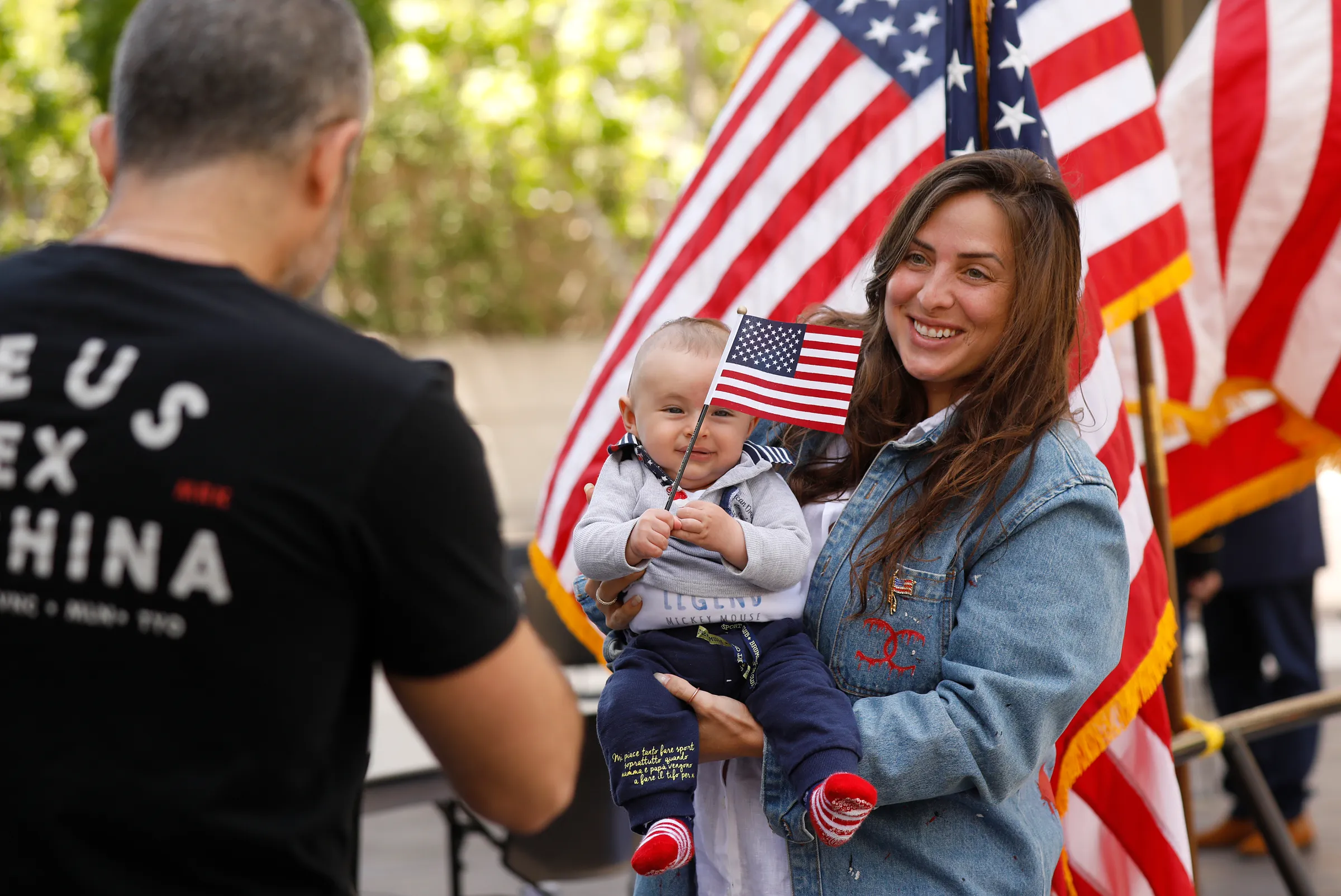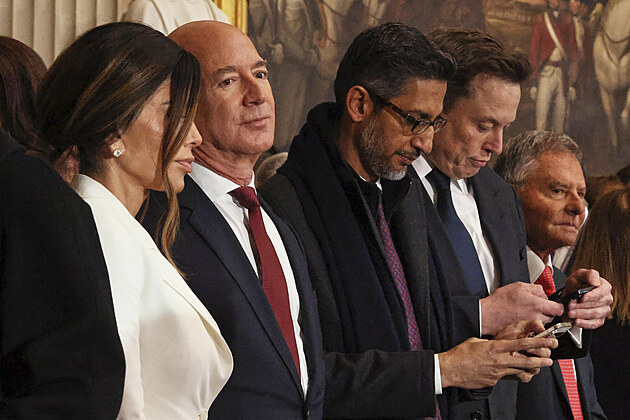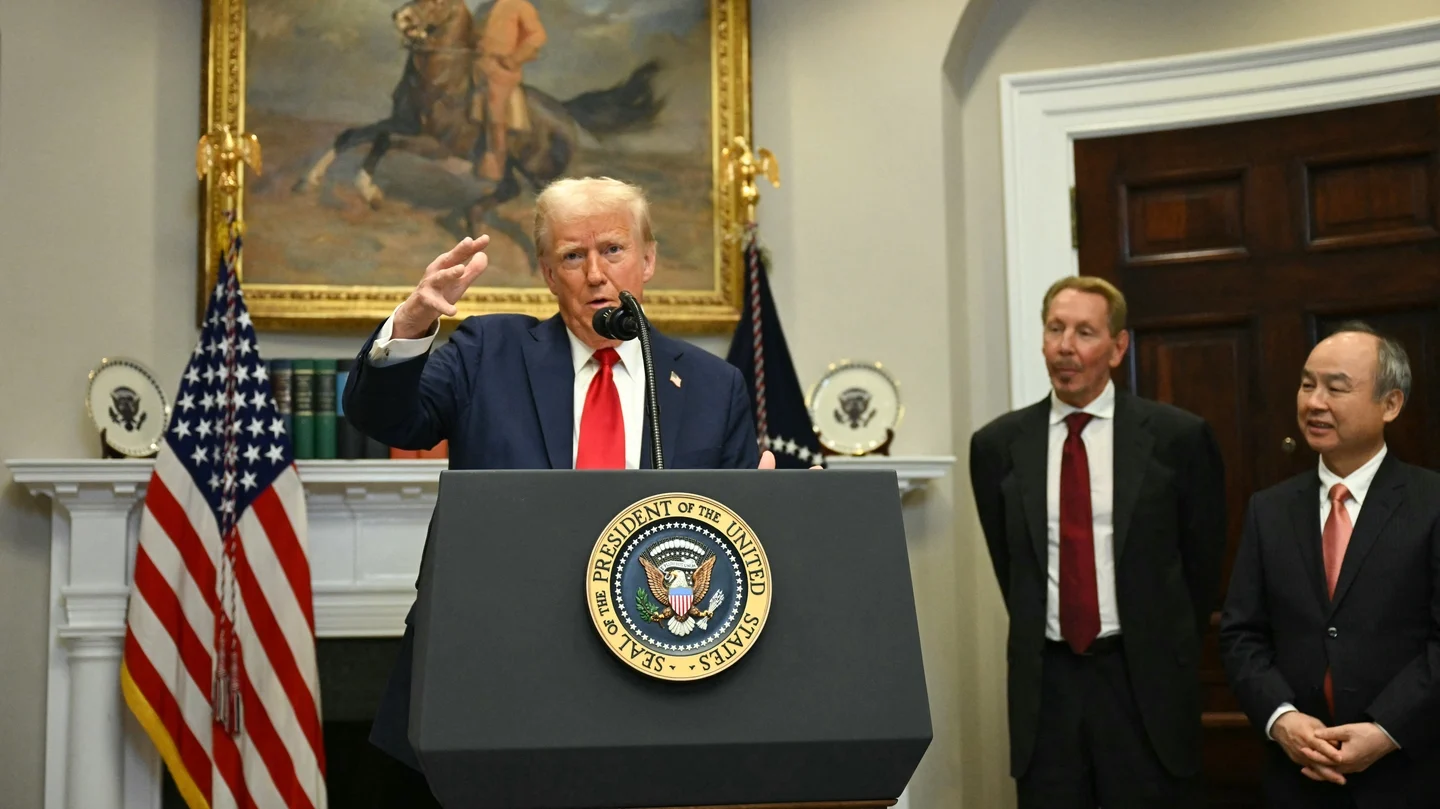In a landmark and polarizing decision, an executive order has been signed to revoke birthright citizenship for children born in the United States to non-citizen parents. The move has set the stage for a fierce legal battle and reignited a heated national debate over immigration, constitutional rights, and the future of American identity.
The Executive Order and Its Implications
The executive order challenges the long-standing interpretation of the 14th Amendment to the U.S. Constitution, which grants citizenship to “all persons born or naturalized in the United States.” Proponents of the measure argue that the amendment was never intended to apply to the children of non-citizens, particularly those who entered the country unlawfully.
“This is about restoring the rule of law and protecting the integrity of American citizenship,” the administration declared in a statement. “The practice of granting automatic citizenship to the children of illegal immigrants encourages abuse of our system and undermines national sovereignty.”
Critics, however, see the move as a direct attack on fundamental constitutional principles. Legal scholars, civil rights organizations, and political leaders across the aisle have condemned the action as unconstitutional, with many promising to challenge it in court.
Legal Challenges Loom Large
The executive order is widely expected to face substantial legal hurdles, with opponents arguing that it contradicts the plain language of the 14th Amendment. Neal Katyal, a former U.S. Solicitor General, remarked, “This order is on a collision course with the Constitution. Any attempt to rewrite the 14th Amendment through executive action will not withstand judicial scrutiny.”
Several lawsuits have already been announced by civil rights organizations, including the American Civil Liberties Union (ACLU), which vowed to take immediate action. “This is a blatant overreach of executive power and a violation of constitutional rights,” said Sophia Martinez, an attorney for the ACLU. “We will fight this in every court in the land.”
Political Fallout and Public Reaction
The announcement has deepened partisan divides in Washington, with Democrats condemning the measure as xenophobic and Republicans largely supporting it as a necessary step to curb illegal immigration. The decision has also drawn mixed reactions from the public, with protests erupting in several major cities and social media platforms flooded with both support and outrage.
Many immigrant communities have expressed fear and uncertainty about the order’s implications. “This decision strips away the basic promise of America,” said Juan Velasquez, an immigrant rights activist. “It’s an attack on families who have contributed to this country for generations.”
Historical Context
The principle of birthright citizenship has been a cornerstone of American democracy since the ratification of the 14th Amendment in 1868, primarily aimed at ensuring citizenship for formerly enslaved individuals and their descendants. Since then, it has been broadly interpreted to include anyone born on U.S. soil, regardless of the immigration status of their parents.
Efforts to challenge this interpretation have surfaced periodically, but none have succeeded in altering the constitutional guarantee. The current executive order represents the most direct attempt yet to redefine birthright citizenship through administrative action.
What Happens Next?
As the legal battle begins, the issue of birthright citizenship is likely to dominate political discourse and courtrooms alike. Analysts predict a prolonged legal fight that could ultimately reach the U.S. Supreme Court. The stakes are high, as the outcome could reshape immigration policy and redefine the concept of citizenship in America.
Meanwhile, families affected by the order are left in limbo, grappling with the uncertainty of their children’s legal status and future. Advocacy groups are mobilizing to provide resources and support, but the emotional toll on communities is undeniable.
Conclusion
The revocation of birthright citizenship marks a turning point in America’s ongoing debate over immigration and constitutional rights. As the nation braces for the legal and political storm ahead, the executive order serves as a stark reminder of the complexities and deep divisions surrounding the issue of citizenship. Whether this bold move withstands judicial scrutiny or becomes a footnote in history will shape the course of America’s identity for generations to come.



While this decision definitely stirs up a lot of controversy, I think it’s important to think about the broader context. How do we balance the rule of law with the protection of constitutional rights, especially when the interpretation of those rights may be evolving?
покупка аккаунтов birzha-akkauntov-online.ru/
безопасная сделка аккаунтов маркетплейс аккаунтов соцсетей
продажа аккаунтов соцсетей гарантия при продаже аккаунтов
магазин аккаунтов маркетплейс аккаунтов
профиль с подписчиками маркетплейс аккаунтов соцсетей
профиль с подписчиками https://kupit-akkaunt-top.ru
площадка для продажи аккаунтов безопасная сделка аккаунтов
Account Trading Platform Account Acquisition
Buy and Sell Accounts accountsmarketplacepro.com
Account Trading Guaranteed Accounts
Account Exchange Service Account Store
Account Selling Platform Account exchange
Accounts marketplace Account Sale
Account Store Buy Pre-made Account
Account Exchange Service Website for Selling Accounts
Account Trading Service Website for Selling Accounts
Online Account Store Account Selling Platform
Website for Buying Accounts Account Sale
account buying service secure account sales
account purchase secure account sales
buy account accounts market
account selling platform account market
find accounts for sale account market
social media account marketplace account trading platform
buy and sell accounts ready-made accounts for sale
verified accounts for sale secure account sales
guaranteed accounts account selling platform
account selling service account exchange
ready-made accounts for sale profitable account sales
ready-made accounts for sale website for buying accounts
account exchange account buying platform
account exchange service online account store
online account store account market
account buying platform guaranteed accounts
buy accounts account trading platform
account buying service account selling platform
buy accounts website for buying accounts
account catalog verified accounts for sale
sell pre-made account profitable account sales
account market account exchange
account sale buy accounts
account acquisition database of accounts for sale
account sale sell pre-made account
guaranteed accounts guaranteed accounts
guaranteed accounts sell accounts
secure account purchasing platform https://accounts-offer.org/
buy accounts https://accounts-marketplace.xyz
sell account https://buy-best-accounts.org
verified accounts for sale https://social-accounts-marketplaces.live
buy and sell accounts https://accounts-marketplace.live/
account trading https://social-accounts-marketplace.xyz
account trading https://buy-accounts.space/
find accounts for sale https://buy-accounts-shop.pro
account exchange https://accounts-marketplace.art
online account store https://social-accounts-marketplace.live
verified accounts for sale https://buy-accounts.live/
account acquisition https://accounts-marketplace.online
account sale https://accounts-marketplace-best.pro
купить аккаунт https://akkaunty-na-prodazhu.pro/
продажа аккаунтов маркетплейсов аккаунтов
маркетплейс аккаунтов соцсетей https://rynok-akkauntov.top
биржа аккаунтов https://akkaunt-magazin.online
площадка для продажи аккаунтов https://akkaunty-market.live
продать аккаунт https://kupit-akkaunty-market.xyz/
покупка аккаунтов https://akkaunty-optom.live
маркетплейс аккаунтов https://online-akkaunty-magazin.xyz/
биржа аккаунтов akkaunty-dlya-prodazhi.pro
биржа аккаунтов kupit-akkaunt.online
facebook ad accounts for sale https://buy-adsaccounts.work/
buy facebook profiles https://buy-ad-accounts.click
facebook ad accounts for sale buy facebook ads accounts
buy facebook accounts for advertising https://buy-ads-account.click
buy facebook accounts cheap https://ad-account-buy.top
buy facebook advertising accounts buy fb account
buy accounts facebook buy facebook profile
facebook account buy https://buy-ad-account.click
buying facebook accounts buy fb ad account
buy google ads threshold accounts https://buy-ads-account.top/
buy google ads verified account https://buy-ads-accounts.click/
buy facebook accounts https://buy-accounts.click
sell google ads account https://ads-account-for-sale.top
google ads account buy https://ads-account-buy.work
buy google ads verified account https://buy-ads-invoice-account.top
buy old google ads account https://buy-account-ads.work/
buy google agency account buy verified google ads accounts
google ads agency accounts https://sell-ads-account.click
buy google ads buy google adwords accounts
facebook business manager for sale https://buy-business-manager.org
buy google ads verified account https://ads-agency-account-buy.click
facebook business manager for sale buy-business-manager-acc.org
buy fb bm buy-bm-account.org
buy facebook business managers https://buy-verified-business-manager-account.org/
buy facebook bm https://buy-verified-business-manager.org/
verified bm https://business-manager-for-sale.org/
buy facebook ads accounts and business managers https://buy-business-manager-verified.org/
buy facebook verified business manager buy facebook verified business manager
buy facebook business account https://verified-business-manager-for-sale.org/
facebook business manager buy buy business manager
buy tiktok business account https://buy-tiktok-ads-account.org
tiktok agency account for sale https://tiktok-ads-account-buy.org
buy tiktok business account https://tiktok-ads-account-for-sale.org
tiktok ads agency account https://tiktok-agency-account-for-sale.org
tiktok ads account buy https://buy-tiktok-ad-account.org
buy tiktok ads buy tiktok ad account
buy tiktok ads account https://buy-tiktok-business-account.org
buy tiktok ad account https://buy-tiktok-ads.org
buy tiktok ads account https://tiktok-ads-agency-account.org
شركة عزل اسطح بالاحساء
buy aged facebook ads account marketplace for ready-made accounts profitable account sales
facebook ad account buy account trading service ready-made accounts for sale
Wow, who knew a little presidential pen stroke could turn a nation into a legal circus? Next thing you know, we’ll need tickets to watch the Supreme Court arguments. 🎪
Birthright citizenship? More like ‘birthright confusion’—what’s next, a rule that only kids born on Wednesdays get a passport? Talk about overthinking! 🤦♂️
y9etrh
oral hgh kaufen
References:
hgh pen kaufen
can you take creatine during a fast
References:
creatine fasted (enoticias.site)
sustanon dianabol cycle
References:
dianabol And Testosterone Cycle for beginners (glk-Egoza.ru)
hgh booster supplements
References:
how much hgh to inject, dedicated-cuckoo-r0mqct.mystrikingly.com,
hgh dosing
References:
hgh benefits bodybuilding; dialsexe.site,
dianabol and deca stack
References:
Anavar Gnc (Git.Caolongle.Com)
cjc-1295 ipamorelin purchase online
References:
ipamorelin dosage 30 mg (http://git.365zuoye.com)
cjc 1295 ipamorelin dosage schedule
References:
cjc 1295 ipamorelin for woman
take sermorelin and ipamorelin together same syringe
References:
What Dosage Of Cjc 1295 Ipamorelin
ipamorelin boom dose results
References:
cjc 1295 Ipamorelin And sermorelin (https://Bezraboten.com)
cjc-1295 ipamorelin dosing
References:
Sermorelin-Ipamorelin-Cjc1295 Where To Buy
cjc 1295 ipamorelin cycle
References:
ipamorelin E Tesamorelin
ipamorelin with cjc starting dose
References:
ipamorelin sermorelin blend dosage (https://www.fuzongyao.cn/andreaholloman)
ipamorelin sacramento
References:
ipamorelin 5mg para que serve – https://noticiasenvivo.site/item/459841 –
sermorelin ipamorelin cjc 1295
References:
https://careerterms.com/companies/cjc-ipamorelin-side-effects-what-you-need-to-know/
1luwrs
injectable legal steroids
References:
anabolic steroids vs testosterone (https://englishlearning.ketnooi.com/@abdulruiz66632?page=about)
steroids to get shredded
References:
legal steroids to lose weight, https://gitea.chloefontenot.org/clemmieharney,
tren workout supplement
References:
short term effects of steroids; http://newslabx.csie.ntu.edu.tw:3000/hellenorton324,
side effects of steroid use
References:
mental health cases in steroid abuse|acybgntbgv0jfnkoyks0e75iu3dejdmsdw:*** [https://myafritube.com/@corrinemaclean?page=about]
underground steroids for sale
References:
People Who Take Steroids (https://lawrencewilbert.com/read-blog/20676_anavar-solely-6-weeks-75-mg-ed-results-with-footage.html)
buy injection steroids online
References:
different names for steroids (https://www.streemie.com/@emmettmcnab693?page=about)
steriod side effects
References:
anabolic def (https://git.ism-dev.net/dominikoflynn6)
anabolic steroids order online
References:
https://git.pasarex.com/arlenfairbridg
steroid injections for muscle building
References:
what is gear bodybuilding (https://quickdatescript.com/@meghanhageltho)
what anabolic steroids do
References:
https://devops.rs2i.fr/nolanmorrison8
bodybuilding com steroids
References:
https://www.instapaper.com/p/16974216
steroids before and after 1 cycle
References:
https://forum.issabel.org/u/nervewish7
bodybuilding supplement sale
References:
https://herring-barnett-4.technetbloggers.de/dianabol-101-beginners-guide-to-cycles-stacks-and-dosages
decca steroids side effects
References:
https://squareblogs.net/patchcross62/post-cycle-therapy-pct-a-comprehensive-guide
steroid medication
References:
https://gpsites.win/story.php?title=top-5-steroid-regimens-and-cycles-for-every-experience-level
drug short
References:
https://images.google.com.hk/url?q=https://hack.allmende.io/CGuOTgpoR5CuwP7E9C60hg/
anabolic steroid prices
References:
https://hedgedoc.digillab.uni-augsburg.de/WqpHzi_hSyyLdOvsFQbFiw/
mdb9rt
**mindvault**
Mind Vault is a premium cognitive support formula created for adults 45+. It’s thoughtfully designed to help maintain clear thinking
**mindvault**
mindvault is a premium cognitive support formula created for adults 45+. It’s thoughtfully designed to help maintain clear thinking
**gl pro**
gl pro is a natural dietary supplement designed to promote balanced blood sugar levels and curb sugar cravings.
**sugarmute**
sugarmute is a science-guided nutritional supplement created to help maintain balanced blood sugar while supporting steady energy and mental clarity.
**vitta burn**
vitta burn is a liquid dietary supplement formulated to support healthy weight reduction by increasing metabolic rate, reducing hunger, and promoting fat loss.
**synaptigen**
synaptigen is a next-generation brain support supplement that blends natural nootropics, adaptogens
**glucore**
glucore is a nutritional supplement that is given to patients daily to assist in maintaining healthy blood sugar and metabolic rates.
**prodentim**
prodentim an advanced probiotic formulation designed to support exceptional oral hygiene while fortifying teeth and gums.
**nitric boost**
nitric boost is a dietary formula crafted to enhance vitality and promote overall well-being.
**sleep lean**
sleeplean is a US-trusted, naturally focused nighttime support formula that helps your body burn fat while you rest.
**wildgut**
wildgutis a precision-crafted nutritional blend designed to nurture your dog’s digestive tract.
**mitolyn**
mitolyn a nature-inspired supplement crafted to elevate metabolic activity and support sustainable weight management.
**yu sleep**
yusleep is a gentle, nano-enhanced nightly blend designed to help you drift off quickly, stay asleep longer, and wake feeling clear.
**zencortex**
zencortex contains only the natural ingredients that are effective in supporting incredible hearing naturally.
**breathe**
breathe is a plant-powered tincture crafted to promote lung performance and enhance your breathing quality.
**prostadine**
prostadine is a next-generation prostate support formula designed to help maintain, restore, and enhance optimal male prostate performance.
**pineal xt**
pinealxt is a revolutionary supplement that promotes proper pineal gland function and energy levels to support healthy body function.
**energeia**
energeia is the first and only recipe that targets the root cause of stubborn belly fat and Deadly visceral fat.
**prostabliss**
prostabliss is a carefully developed dietary formula aimed at nurturing prostate vitality and improving urinary comfort.
**boostaro**
boostaro is a specially crafted dietary supplement for men who want to elevate their overall health and vitality.
**potent stream**
potent stream is engineered to promote prostate well-being by counteracting the residue that can build up from hard-water minerals within the urinary tract.
**hepatoburn**
hepatoburn is a premium nutritional formula designed to enhance liver function, boost metabolism, and support natural fat breakdown.
**hepato burn**
hepato burn is a potent, plant-based formula created to promote optimal liver performance and naturally stimulate fat-burning mechanisms.
**flow force max**
flow force max delivers a forward-thinking, plant-focused way to support prostate health—while also helping maintain everyday energy, libido, and overall vitality.
**neurogenica**
neurogenica is a dietary supplement formulated to support nerve health and ease discomfort associated with neuropathy.
**cellufend**
cellufend is a natural supplement developed to support balanced blood sugar levels through a blend of botanical extracts and essential nutrients.
**prodentim**
prodentim is a forward-thinking oral wellness blend crafted to nurture and maintain a balanced mouth microbiome.
**revitag**
revitag is a daily skin-support formula created to promote a healthy complexion and visibly diminish the appearance of skin tags.
nwde3g
is anabolic a steroid
References:
https://woodstocksbest.com/a-guide-how-to-become-an-ui-designer/
strongest testosterone steroid
References:
https://www.beyoncetube.com/@harris83j31435?page=about
hgh dosage cycle
References:
jintropin Hgh (https://www.argfx1.com/user/sudanpisces50/)
hgh cycle dosage bodybuilding
References:
3 iu hgh per day results; https://www.bidbarg.com/legal/user/greenmarket43,
most effective steroid cycle
References:
https://farangmart.co.th/author/handlecall00/
hgh bodybuilding kaufen
References:
is 4 units of Hgh a day bad (https://wikimapia.org/external_link?url=https://paladarplus.es/pgs/comprar_winstrol.html)
hgh-x2 results
References:
hgh dosage iu (https://stackoverflow.qastan.be/?qa=user/sharonfridge28)
best hgh booster
References:
4iu hgh reddit – http://premiumdesignsinc.com/forums/user/commabear27/ –
hgh dosage for men
References:
hgh Musculation Dosage (https://www.instapaper.com/p/17110001)
test and hgh cycle dosage
References:
how much hgh to take a day (https://www.askmeclassifieds.com/user/profile/3103500)
is hgh harmful
References:
hgh preis pro einheit [https://apunto.it/user/profile/358715]
gear pro steroids
References:
https://pinshape.com/auth/users/auth/google
hgh hormone bodybuilding
References:
Hgh Dosierung frauen – https://fravito.fr/user/profile/2080850 –
3 month hgh before and after
References:
hgh x2 somatropinne – http://decoyrental.com/members/summertent5/activity/1010491/,
wat is hgh
References:
hgh bodybuilding results (https://platform.joinus4health.eu/forums/users/pyjamanic5/)
is hgh bad for you
References:
hgh dosierung (https://pads.jeito.nl/Tk4IvYy4TEiCFDxmQqmWzA/)
8 iu hgh per day
References:
hgh morgens oder abends (https://squareblogs.net/iriszinc26/dianabol-dianabolone-10-mg-prise-de-masse-90-capsules)
hgh vs test
References:
https://clashofcryptos.trade/wiki/Somatropin_Evogene_Hgh_Kaufen_Human_Growth_Hormone
hgh cycle dosage bodybuilding
References:
https://skitterphoto.com/photographers/1653758/davies-mayer
hgh bijwerkingen
References:
https://humanlove.stream/wiki/Hgh_Kaufen_Und_Die_Vorteile_Moderner_Prparate_Fr_Den_Muskelaufbau
grand eagle casino
References:
https://www.lanubedocente.21.edu.ar/profile/berthelsenxbztravis6711/profile
Hello.This post was really fascinating, especially because I was searching for thoughts on this matter last Friday.
casino euro
References:
https://repo.komhumana.org/halmcgruder685
gala casino glasgow
References:
http://www.seoulschool.org/bbs/board.php?bo_table=free&wr_id=1487591
prairie knights casino
References:
http://git.edazone.cn/nestorflanders
coolcat casino
References:
https://www.cybersecurityhouse.com/employer/scratchies-online-australia-2025-best-real-money-scratch-cards/
mit blackjack team
References:
http://property-d.com/redir.php?url=https://univer-novaja-obschaga-v1.tnt-lordfilm.net/user/edelinifsv
Nein, Gewinne aus deutsche Online Casinos sind in der Regel steuerfrei, solange sie aus legalen, lizenzierten Quellen stammen. So können Sie jederzeit mobil auf Ihr Online Casino Konto zugreifen und in einer sicheren Umgebung spielen. Gewinne aus Echtgeldspielen sind legitim und werden sicher ausgezahlt, wenn Sie die Bonusbedingungen erfüllen.
Regelmäßige Aktionen wie Freispiele und Turniere bieten Spielern zusätzliche Gewinnchancen und Belohnungen. Im Demo-Modus oder mit Freispielen ohne Einzahlung können Spieler auch ohne Einzahlung spielen. StarGames bietet 100 Freispiele und einen 100% Bonus bis zu 100 Euro bei Registrierung an. Zusätzlich zu den Willkommensboni bieten viele Casinos diverse Aktionen wie Cashback Aktionen, Reload Boni und Gewinnspiele. Beliebte Spielautomaten in deutschen Online Casinos schließen Titel wie ‘Book of Ra’ ein, einschließlich der connection book of ra. Aktuelle Software-Entwickler wie Bally Wulff und Edict erweitern ebenfalls das Spielangebot in deutschen Online Casinos. Besonders bemerkenswert ist das Angebot an online spielautomaten, das ständig erweitert wird, um den Spielern neue und aufregende Erlebnisse zu bieten.
References:
https://online-spielhallen.de/ice-casino-top-spiele-boni-sicherheit/
Dazu gehören Razor Shark, The Dog House Megaways und Gates of Olympus, die durch hohe Gewinnmöglichkeiten, Freispiele und packendes Gameplay bestechen. Merkur Spielen Sie bei uns alle Merkur Automatenspiele kostenlos und ohne Anmeldung. Spieler können hier spannende Freispiele und hohe Multiplikatoren mit einem RTP-Wert von 96,71 % erwarten. Neben den herkömmlichen Extras wie Freispiele oder Einzahlungsboni warten Einladungen zu exklusiven Events auf Sie. Glücksspielgewinne in Deutschland sind immer steuerfrei. Du mußt keine Steuern auf die Echtgeldgewinne bezahlen.
Nach der Anmeldung lassen sich alle Titel als Demo gratis ausprobieren, ehe es um Echtgeld Online Games geht. Die unterschiedlichen Online Roulette Versionen bieten verschiedenste Einsatzlimits. Bei einem Echtgeld Casino Online Betreiber können Sie aus Tausenden der besten Echtgeld Spielautomaten wählen. Online Casinos mit Spielen mit Echtgeld ähneln ihren Pendants in landbasierten Casinos in Deutschland. Ein gutes Spielangebot ist eigentlich das A und O, wenn in einer Online Spielbank Echtgeld zum Einsatz kommt. Das können Freispielpakete, Cashbacks oder persönliche Konto-Manager sein, die Spieler im VIP- bzw.
References:
https://online-spielhallen.de/hitnspin-casino-osterreich-jetzt-spielen-800-bonus/
nba games tonight
References:
https://vrwant.org/wb/home.php?mod=space&uid=4802241
southern california casinos
References:
https://www.folkd.com/submit/graph.org/Introducing-Bing-generative-search-Bing-Search-Blog-12-07/
no deposit bonus blog
References:
https://www.aupeopleweb.com.au/au/home.php?mod=space&uid=2468041
slot madness no deposit bonus codes
References:
https://www.adhub.fi/user/profile/12424
mohawk casino
References:
https://www.sf2.net/space-uid-727017.html
Pretty section of content. I just stumbled upon your web site and in accession capital to assert that I get in fact enjoyed account your blog posts. Anyway I will be subscribing to your augment and even I achievement you access consistently quickly.
juegos five